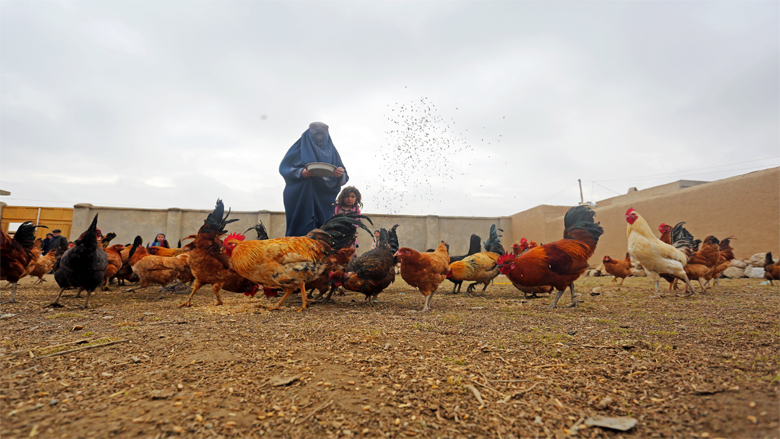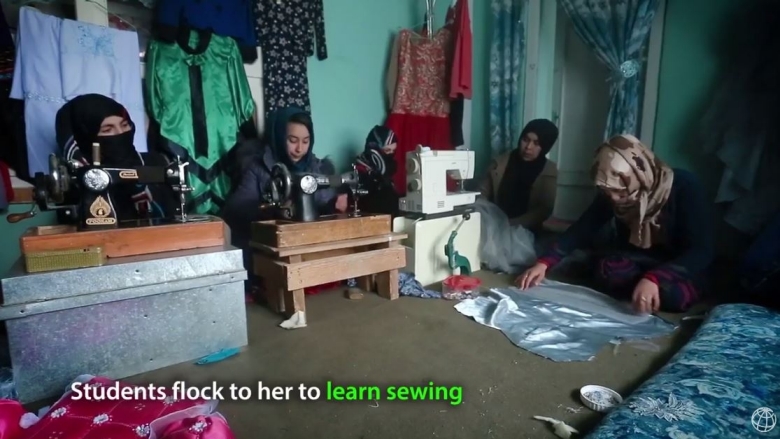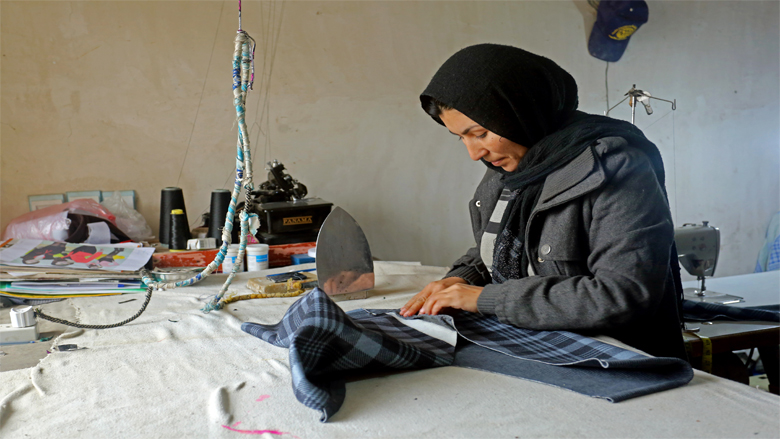NAHR-E-SHAHI DISTRICT, Balkh Province – Halima, 35, is showing her daughters how to feed the chickens strutting around the yard. She is the proud owner of a small poultry farm in Noor-e-Khuda village.
Her poultry farm, established in 2014, houses 100 chickens and roosters. “Now women too have a role to play in family finances,” says Halima, an entrepreneur and mother of seven. There was a time when Halima was a housewife and did not have any independent source of income. Her husband’s income as a daily wage laborer was not enough to make ends meet but she was unable to supplement it. In rural Afghanistan, women do not take up employment outside the household for fear of social ostracism.
Halima was offered a way out of their poverty through a loan from the Village Savings and Loan Association (VSLA) in her village in Nahr-e-Shahi district, Balkh Province. “I remember some men who told me that women are useless but I never accepted that,” says Halima as she proudly gives a tour of her farm. “I had a dream to do something more with my life and the VSLA has helped me achieve this.”
The VSLA was established with the support of the Afghanistan Rural Enterprise Development Program (AREDP), which encourages women to come together and establish Savings Groups (SGs). Halima’s village had adopted this model and established SGs and a VSLA, which she became a member of. As a member, she was granted four loans ranging from 5,000-30,000 afghanis each (about $75-$450) by the VSLA.
With these loans, Halima established a poultry farm and bought a cow and a motorcycle for her husband so that he too could work. Halima’s husband now works as a porter, while she manages the poultry and cow. Halima supplements her husband’s income by selling 40 eggs a day in addition to milk and dairy products and earning 350 afghanis (about $5) daily.



